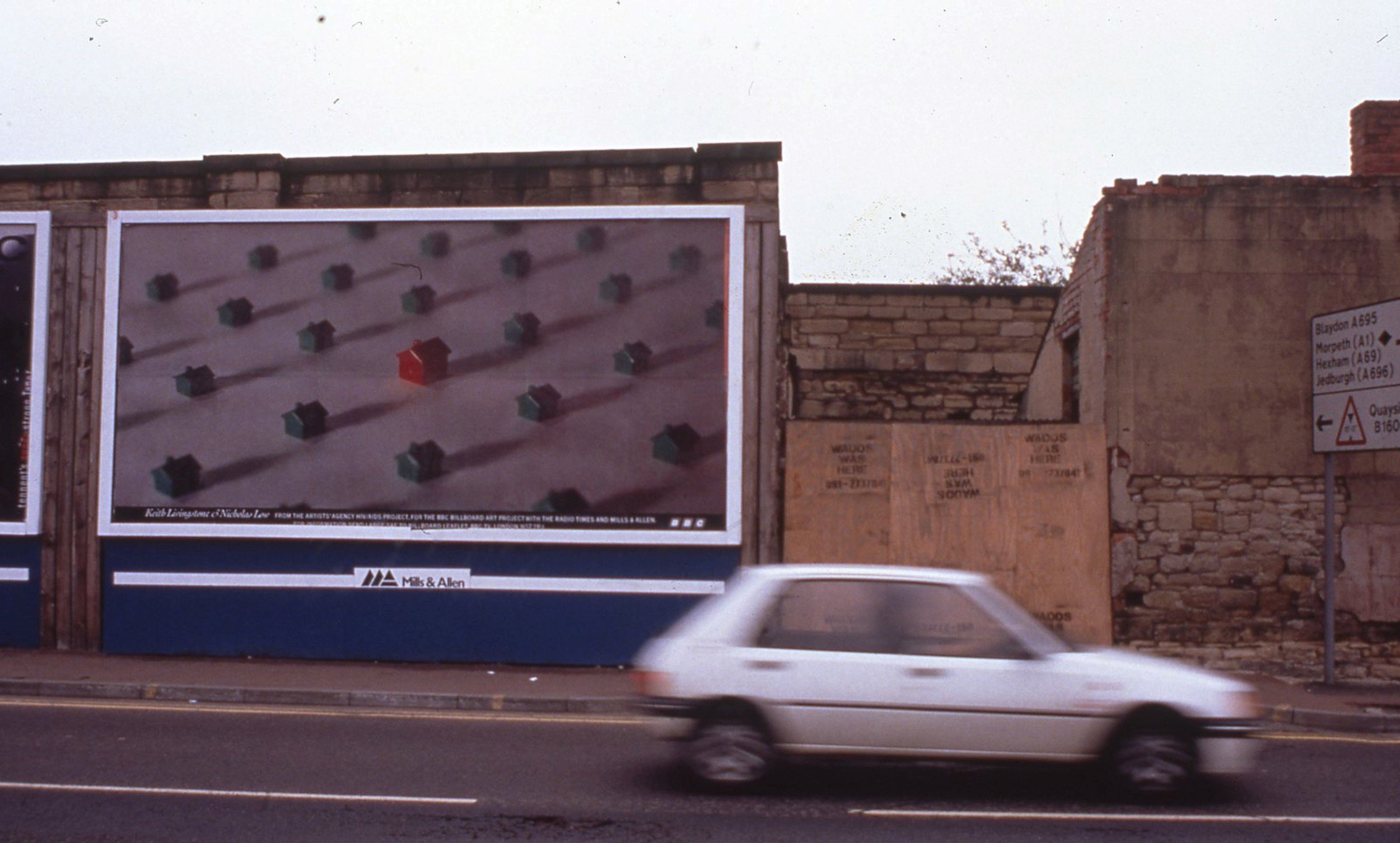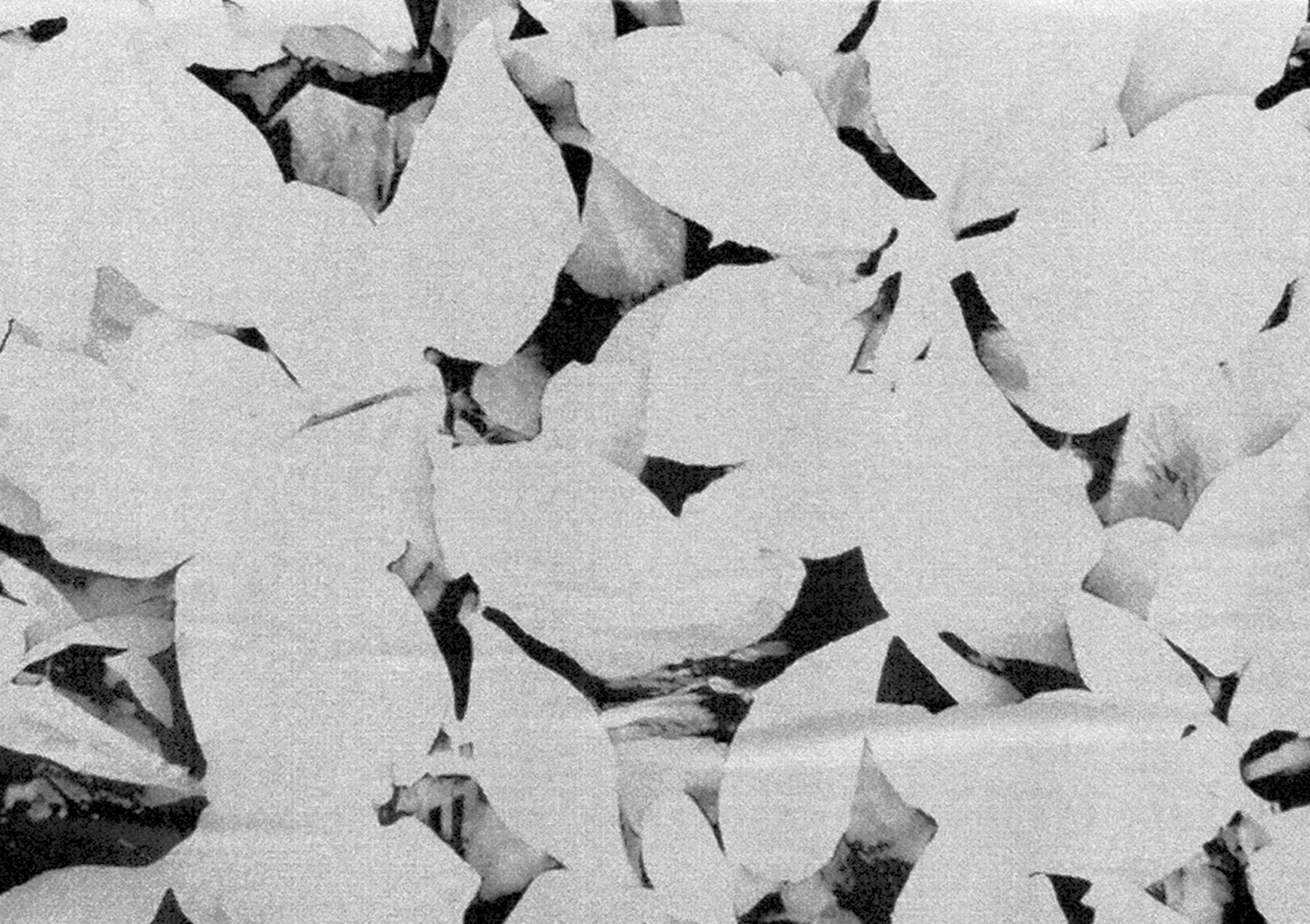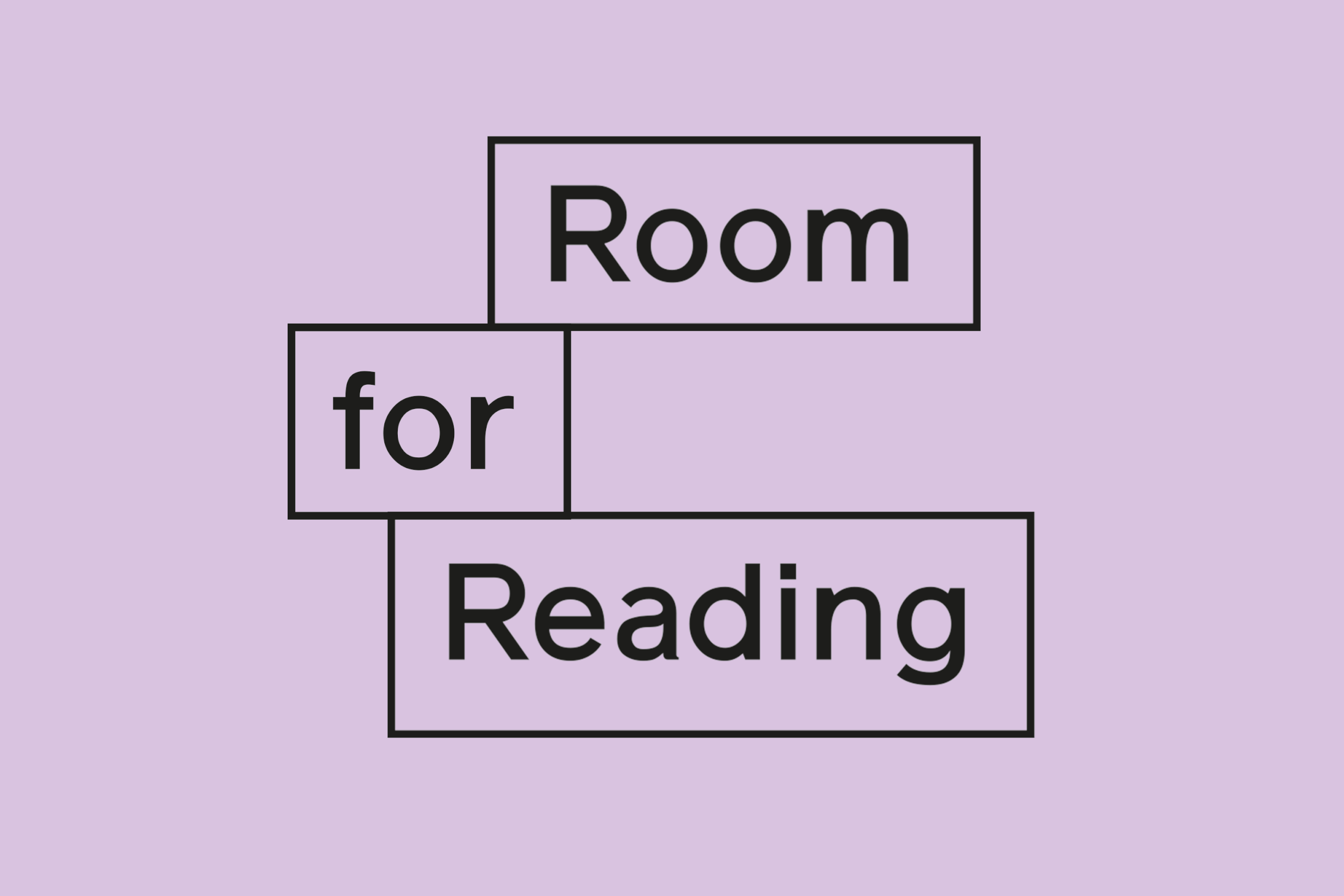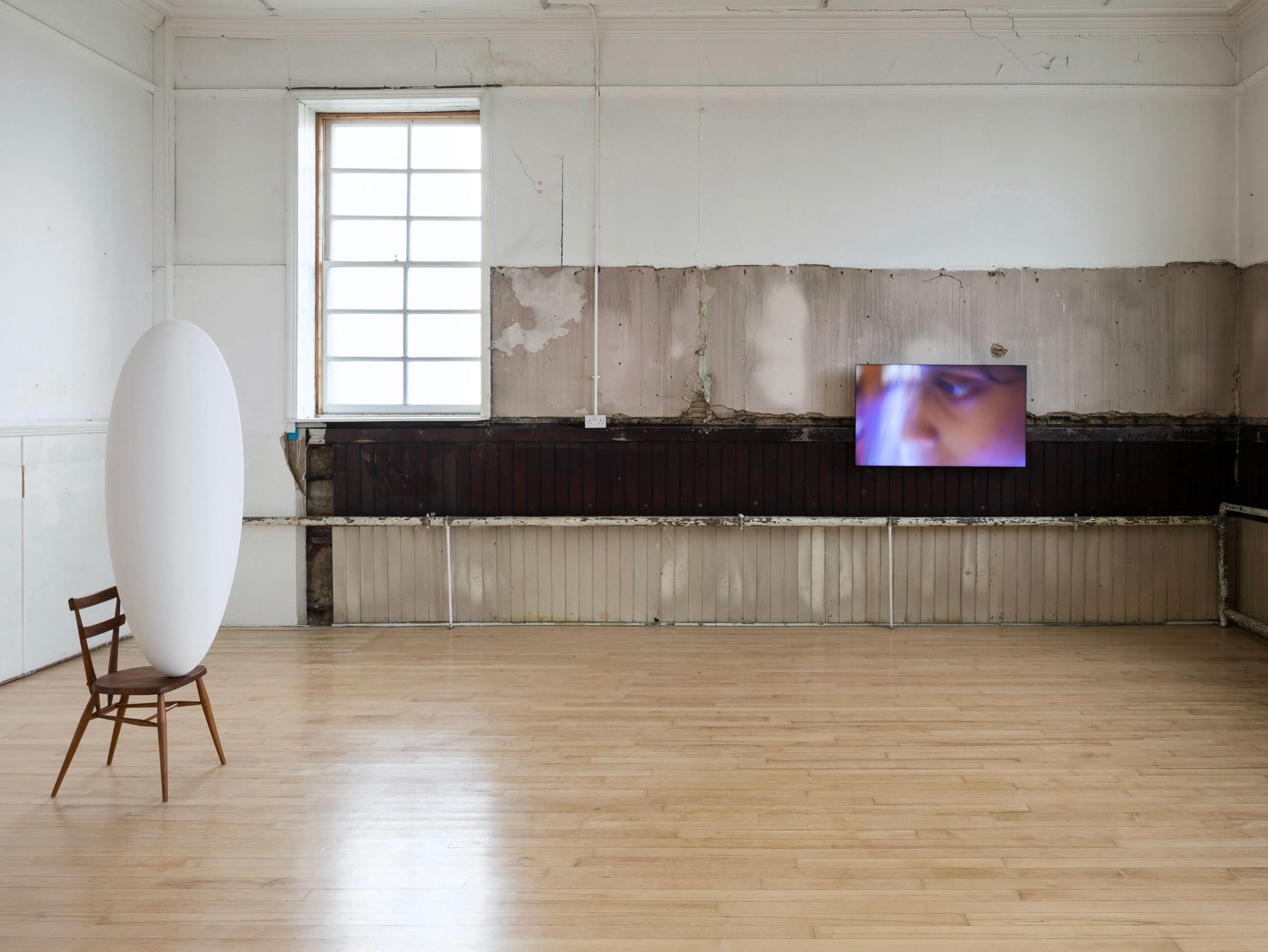
Library Session / Laura Guy – ‘Imagining a City’
Image: Photograph produced in a Living Proof workshop by Keith Livingstone and Nicholas Lowe, shown here in Newcastle as part of the Mills and Allen, BBC, and Radio Times Billboard Project, May 1992. Photo: Keith Pattison.
‘Imagining a City’ is a series of events developed by Laura Guy as part of the research project ‘Remapping the ‘City of Culture’ through LGBTQ+ Cultural Production', supported by Glasgow School of Art.
'Imagining a City’ looks back across two decades of queer and trans cultural activity in Glasgow from 1980 to 2000, a period bookended by the Sexual Offences Act 1980 (which partially decriminalised homosexuality in 1981), and the repeal of Section 28 (2A in Scotland) in 2000, three years before England and Wales. Marking the midway point between these dates is Glasgow’s designation as European Capital of Culture in 1990, a pivotal moment in the city’s history, which instigated a period of confident, culture-driven regeneration, and shaped the character of the city’s civic identity.
Guy’s research reexamines this period of cultural growth through the lens of concurrent queer and trans cultural production. Much of this activity deployed arts and culture to respond directly to the onset of crises surrounding HIV and AIDS, and advocated for the needs and rights of the LGBTQ+ community.
Guy is working with invited collaborators who include artist and researcher Steven Grainger, Senior Lecturer in Art History at Newcastle University Fiona Anderson, curator and writer Taylor Le Melle, and researcher, writer and artist Evelyn Whorrall-Campbell to bring this material into conversation with the present, exploring current queer and trans infrastructure, self-organising and its impact on contemporary civic identities.
Image: Steven Grainger, Detail from ‘Power from Things Not Declared’ (2025).
With The Common Guild, ‘Imagining a City’ unfolds initially through a closed discursive session in December 2024 with Fiona Anderson, Taylor Le Melle, Evelyn Whorrall-Campbell, who respond to the idea of queer and trans infrastructure through discussion of their own research and practice alongside invited participants. Through provocations focusing on archives of HIV/AIDS cultural production in the North East of England (Fiona Anderson), practices of building just infrastructure in the arts (Taylor Le Melle) and trans political horizons through returns to the1990s (Evelyn Whorrall-Campbell), the informal group discussion will reflect on how infrastructure limits, is worked into, and is reimagined through queer and trans practice.
A public session, ‘Inventing vocabularies’ with Laura Guy and Steven Grainger, will follow on 27 February 2025. In parallel, Grainger’s site-specific poster project ‘Power from Things Not Declared’ which maps significant locations in Glasgow’s queer cultural history will be situated across the city from 27 February – 27 March. Finally, a display of ephemera, archival material and selection of publications that trace queer and trans interventions within Glasgow’s public realm will be presented in The Common Guild library from 27 February – 27 March.
Contributors
Laura Guy is a Reader in Gender, Sexuality and Culture at the Glasgow School of Art. She is editor of Phyllis Christopher’s artist monograph Dark Room: San Francisco Sex and Politics, 1988-2003 (Book Works, 2022) and co-editor, with Glyn Davis, of Queer Print in Europe (Bloomsbury, 2022). With Fiona Anderson, Flora Dunster and Theo Gordon, she is co-editor of a special issue of British Art Studies dedicated to ‘Queer Art in Britain since the 1980s’ (Spring, 2025). Between 2023-24, she was the project lead for ‘Remapping the ‘City of Culture’ through LGBTQ+ Cultural Production’.
Fiona Anderson is an art historian based in the Fine Art department at Newcastle University. Her work explores queer art histories from the 1970s to the present, particularly in the context of the ongoing HIV/AIDS epidemic and in relation to preservation and archiving practices, in the USA and Europe. She is the author of Cruising the Dead River: David Wojnarowicz and New York’s Ruined Waterfront (University of Chicago Press, 2019). Her writing has also been published in Third Text, Journal of American Studies, and Oxford Art Journal. From 2016-2019, she was UK lead for Cruising the Seventies: Unearthing Pre-HIV/AIDS Queer Sexual Cultures (CRUSEV), a collaborative research project which explored and reconstructed aspects of LGBTQ+ social and sexual cultures of the 1970s and examined their significance for LGBTQ+ people, queer organising, and queer artmaking across Europe in the present and future.
Taylor Le Melle works as a curator (of sorts) and certainly as a writer of ante-modern and anti-modern criticism; off-kilter catalog essays and more artistic subgenres of fiction; as an editor and publisher of several collections of science fantasy, theory and poetry; as a researcher into plants, property and physical experience — bodies, the social kind with reluctance, and the flesh kind with enthusiasm — cultivating perception and proprioception through experimentation. Taylor Le Melle is one of several co-directors of London-based workers cooperative not/nowhere, whose primary occupation is with building a just infrastructure for artistic practice via the circulation and distribution of 8mm and 16mm moving image formats. Previous presentations include: Deviant Research, Van Abbe Museum (cur. Yolande van der Heide, N Aikens); Research Fellowship (org. F Dodzan/A Groten), Sandberg Instituut; Amant Foundation Residency, Brooklyn (cur. J Berrios); Text Exercises, Felix Gaudlitz, Vienna (cur. Richard Birkett); Wysing Arts Centre, Cambridge (cur. Amanprit Sandhu). Recent Writing: Anthea Hamilton: Mash Up, Triangle Books; Otobong Nkanga: Unearthed, Kunsthaus Bregenz; Renee Green: Inevitable Distances, Hatje Cantz; DNA6: Carrier Bag Fiction, Spector.
Evelyn Whorrall-Campbell is a researcher, writer and artist. They completed their PhD in Film and Screen Studies at the University of Cambridge in 2024, with a thesis on British trans cultural production and trans theory in the 1990s. In 2024-25 they are a Postdoctoral Fellow at The Institute for Advanced Studies in the Humanities at the University of Edinburgh. Their PhD combined historical and theoretical approaches to demarcate this as a period of radical practice and epistemic change, and to argue that the difficulty of thinking trans in the present originates with the political horizons of the 1990s. Informed by their creative work, Evelyn’s research attempts to develop strategies of trans theorising and practice that challenge the foreclosure of gender transition as material reality. Their writing has been published or is forthcoming in British Art Studies, world picture journal, Art Monthly, and Cambridge Literary Review, amongst others. Evelyn is also the author of Memoirs of a Child Plot Hole: How to Escape Yourself Without Even Trying, a work of experimental fiction published in 2022 by Sticky Fingers Publishing. Their work has been shown, performed, read at TACO!, Kaunas Artists’ House, Auto Italia, Kupfer Project and Kingsgate Project Space.
Further Info
‘Imagining a City’ is supported by a Carnegie Research Incentive Grant and by the Glasgow School of Art as part of the research project ‘Remapping the ‘City of Culture’ through LGBTQ+ Cultural Production’.
Event Details
Steven Grainger – ‘Power from Things Not Declared’ –
27 February – 27 March
A site-specific poster project mapping significant locations in Glasgow’s queer cultural history over a twenty-year period.
‘Inventing Vocabularies’ –
Library Session took place on 27 February 2025
About Library Sessions
Centred around books, readings, discussion and the sharing of research, Library Sessions take place in TCG’s library space and include one-off sessions and events in series led by invited artists, writers, academics and researchers. Sessions might use the library as a catalyst, or contribute something new to be added to our evolving library collection.
Related

Library Session / Laura Guy & Steven Grainger – ‘Inventing Vocabularies’
Image: Albert Drive near Tramway, Glasgow, 1992. Courtesy of Simon Watney.
Led by writer Laura Guy and artist Steven Grainger, this session introduces a year-long project that explored recent histories of the city of Glasgow through queer and trans cultural practice. Framed by the idea of ‘inventing vocabularies’ – Ann Cvetkovich’s description of telling lesbian stories through oral history approaches – the session will focus on the methods and materials that the project explored.
Coinciding with Grainger’s ‘Power of Things Not Declared’, a poster project across the city, the event will be accompanied by a small display of ephemera that traces queer and trans interventions within Glasgow’s public realm. 'Inventing Vocabularies’ will invite attendees to think through these partial documents alongside practices of storytelling, making, and organising in the present.
Laura Guy is a Reader in Gender, Sexuality and Culture at the Glasgow School of Art. She is editor of Phyllis Christopher’s artist monograph Dark Room: San Francisco Sex and Politics, 1988-2003 (Book Works, 2022) and co-editor, with Glyn Davis, of Queer Print in Europe (Bloomsbury, 2022). With Fiona Anderson, Flora Dunster and Theo Gordon, she is co-editor of a special issue of British Art Studies dedicated to ‘Queer Art in Britain since the 1980s’ (Spring, 2025). Between 2023-24, she was the project lead for ‘Remapping the ‘City of Culture’ through LGBTQ+ Cultural Production’.
Steven Grainger is a Glasgow-based artist, researcher, and lecturer in Fine Art at City of Glasgow College whose sculptural and collage based practice is engaged with ideas of visibility, invisibility and queer history. Between 2023-24, he was the research assistant for ‘Remapping the ‘City of Culture’ through LGBTQ+ Cultural Production’.
Further Info
This event is supported by a Carnegie Trust Research Incentive Grant and by the Glasgow School of Art as part of the research project ‘Remapping the ‘City of Culture’ through LGBTQ+ Cultural Production’.
Event Details
This event took place on Thursday 27th February.
Listen to Laura Guy and Steven Grainger -
About Library Sessions
Centred around books, readings, discussion and the sharing of research, Library Sessions take place in TCG’s library space and include one-off sessions and events in series led by invited artists, writers, academics and researchers. Sessions might use the library as a catalyst, or contribute something new to be added to our evolving library collection.
Related

Steven Grainger – ‘Power from Things Not Declared’
Image: Steven Grainger, Detail from ‘Power from Things Not Declared’, 2025.
‘Power from Things Not Declared’ is a site-specific poster project that maps significant locations in Glasgow’s queer cultural history over a twenty-year period bookended by the Sexual Offences Act (1980) and the repeal of Section 28 in Scotland (2000).
The posters recall Edwin Morgan’s poem ‘Glasgow Green’ (1963) and incorporate abstracted elements from a photograph taken at this location in 2024. Through their layered, abstract images, the posters function as marker points for geographic locations and as forms of coded language.
Echoing the spirit of the exhibition ‘Read My Lips: New York AIDS Polemics’, curated by Nicola White at Tramway in 1992, which responded to the AIDS crisis through polemical artworks that activated locations across the city, ‘Power from Things Not Declared’ presents a series of interventions in public space. More fleeting than the polemical tone of AIDS activist graphics, the posters reconsider visibility, memory, and the relationship between Glasgow’s queer past and present.
Steven Grainger is a Glasgow-based artist, researcher, and lecturer in Fine Art at City of Glasgow College whose sculptural and collage based practice is engaged with ideas of visibility, invisibility and queer history. Between 2023-24, he was the research assistant for ‘Remapping the ‘City of Culture’ through LGBTQ+ Cultural Production’.
Further Info
‘Power from Things Not Declared’ is supported by a Carnegie Research Incentive Grant and by the Glasgow School of Art as part of the research project ‘Remapping the ‘City of Culture’ through LGBTQ+ Cultural Production’.
Event Details
A map of poster locations can be found below.
Related

Room for Reading / Laura Guy
Design: Maeve Redmond
In conjunction with Laura Guy and Steven Grainger’s event ‘Inventing Vocabularies’, Guy shares a selection of writing that has shaped the research project ‘Imagining a City’ for our Room for Reading.
Guy selects 'Leaving the Auld Toon' in Nothing Personal: Pilot Issue (2021) by Neil Clements; ‘All Shadows are Alive’ (2023) by Esther Draycott; 'Teneu’ (2024) by Rosie's Disobedient Press; ‘Ingress’ (2023) by Kate Morgan and ‘Apparitions (Nines)’ (2024) by Nat Raha.
'Leaving the Auld Toon' in Nothing Personal: Pilot Issue (2021) by Neil Clements.
'Leaving the Auld Toon' in Nothing Personal: Pilot Issue (2021) by Neil Clements
“I moved to Glasgow ten years ago, in 2015. I was working on my PhD, which looked at how queer feminist publics had been imagined by artists and activists through ephemeral print cultures, focusing on the manifesto form. Through this research, I was interested to come across the exhibition ‘Read My Lips: New York AIDS Polemics’, curated by Nicola White at Tramway in 1992. Histories of queer art and culture are often framed through notions of scarcity. Though it’s important not to understate the backdrop of homophobic legislation and government inaction against which ‘Read My Lips’ took place, it also happened at a time of relative abundance. The exhibition was well supported by public funding in the period immediately following Glasgow’s designation as ‘European City of Culture’.
Thinking about the implications of this exhibition for narratives of art and culture in the early 1990s, I have also been thinking about the cultural scene that I have participated in since 2015. This period has seen the emergence of a new institutional - or infrastructural, as the late Marina Vishmidt identified - critique. Neil Clements’ essay ‘Leaving the Auld Toon’, published in the pilot issue of Nothing Personal (2021), was instructive for me in this respect. Addressing Glasgow International and the story of the city it reinforces, Neil’s essay also provides a useful overview of transformations within the city’s funding landscape over the last two decades. Here paucity is not something that belongs to the past but the present. Yet he also identifies a ‘patchwork infrastructure’ of local practice. He writes, “if the city is to function in service of its local practitioners, we must pay closer attention to its internal rhythms”.”
‘All Shadows are Alive’ (2023) by Esther Draycott.
‘All Shadows are Alive’ (2023) by Esther Draycott
“‘All Shadows are Alive’ is the outcome of Esther Draycott’s research project about the Glasgow drying green. The formal inventiveness of her approach to histories of the city is structured through multiple voices and was developed within her PhD. In her writing, Esther weaves different kinds of artefacts together in a process that could be likened both to excavation and to reconstruction. It reminds me of what Naomi Pearce calls a ‘forensic feminist methodology’, where evidentiary approaches are employed in ways that complicate the writing of history of women’s lives and work. It also brings to mind Glasgow-based writer and artist Shola von Reinhold’s ‘Lote’ (2020), which does amazing work in relation to the obfuscation and erasure of black figures in history. The poet Edwin Morgan is a figure who casts a shadow across Esther’s pamphlet. She writes about how he uses ‘the dirt that remains on billowing white sheets on the Green to speak to another obfuscated story, that of homosexual life in post-war Glasgow’.”
'Teneu’ (2024) by Rosie's Disobedient Press.
'Teneu’ (2024) by Rosie's Disobedient Press
“Adrien Howard and Lisette May Monroe founded Rosie’s Disobedient Press in 2020, to foreground writers working from perspectives that have historically been marginalised by both mainstream and artist publishing. Like Esther’s writing, Rosie’s recent collection ‘Teneu’ is a situated exploration of the city, one that invokes the deep histories and forgotten futures of the St Enoch Centre. Calling upon the eponymous saint, Teneu foregrounds non-linear, queer temporalities in ways that are reminiscent of Charlie Prodger’s video ‘Bridget’ (2016). Teneu is also a meditation on formal and informal infrastructures and in this way contributes to a broader landscape of practice investigating post-industrial and post-colonial lineages and legacies within the fabric of the city of Glasgow. Mason Leaver-Yap’s contribution to Teneu concludes with a question that seems to encircle much of this work. “Classing something as a ruin is less about the thing being labelled, and more a question of who has the power to manifest and name the ruination in the first place... A ruin for whom, ruined by whom?”.”
‘Ingress’ (2023) by Kate Morgan
“Both Kate and their writing came to me through sad circumstances and in those circumstances opened up material and tender descriptions of fractured intimacies. They wrote ‘Ingress’ from their tenement flat in Glasgow. It contains observations about living, working, relationships and architectures. Like other texts on this list, ‘Ingress’ helps me to think about infrastructure in ways that are both critical and expansive. The scaffolding for ‘Ingress’ is unsure, susceptible to leaks. Glasgow seeps into the text as an atmospherical state.”
‘Apparitions (Nines)’ (2024) by Nat Raha.
‘Apparitions (Nines)’ (2024) by Nat Raha
“For some time now, my research and writing has predominantly attended to archives of post-1960s feminist, queer and trans cultural activity. There has been a tension in this work: the tug of the past on the urgent demands of the present. Along with others, I have been interested in this tension, in thinking through and alongside practices that make returns in ways that might allow the present to appear other than its dominant and dominating forms. But recently I’ve found myself less convinced by this desire to return to the archive. In part a consequence of regarding the genocide in Gaza, it’s also, not unconnectedly, because I’m compelled to write in relation to the counter-institutional and counter-infrastructural practices that are present in this city, some of which I’ve recorded here. Nat Raha’s scholarship is remarkable partly for the way it enfolds histories within practice and doing so expands the horizons of past(s) and present(s). Her poetry, most recently published in her book ‘Apparitions (Nines)’, does this too but with the greater immediacy and urgency, accumulation and interruption her form allows.”
Details
In conjunction with our projects, exhibitions and events, Room for Reading offers artists we work with an opportunity to contribute to The Common Guild library and share the books and resources that have influenced their artistic practice.
Every artist’s selection is added to The Common Guild’s expansive reference library of artist books, catalogues, and cultural and critical theory.
Visit
Our library space is open every Thursday from 12-5pm between 27th February and 27th March.





